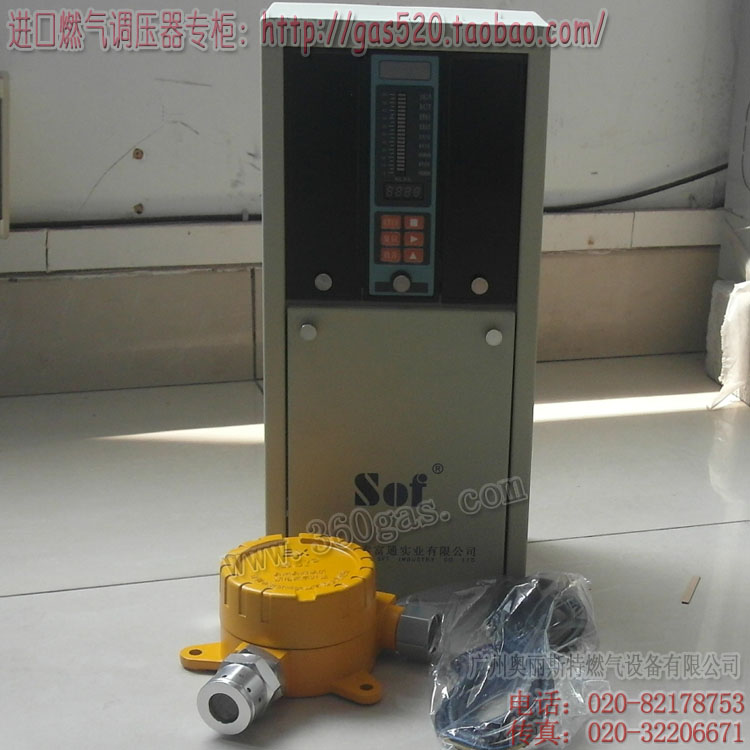位置:首页 > 燃气资讯 > 加州继续NGV项目资金/Califo
加州继续NGV项目资金/California Continues Funding for NGV Projects
浏览次数 1189 , 日期 2013-05-13 , 燃气设备 加入收藏
加州能源委员会已批准拨款的项目,将支持清洁,替代燃料汽车在加州公路上的数字增加了数,从而帮助国家应付气候变化的目标。该奖项通过委员会的替代和可再生燃料和车辆技术(ARFVT)的计划,由议会法案118。2013-2014年的资金优先级也已经设置,有两个方案,包括天然气汽车项目的支持。
国家的投资在这些项目中,保障配套资金要求获奖者,付款发票报销的基础上,经过审查和批准。
批准的奖项当中有以下几方面的天然气项目,合共约2390000美元的。
- 萨克拉门托市将获得60万美元安装新的液化天然气(LNG)的加油设备和翻新现有的LNG设备在南方地区的城市在城市的企业的院子里。最少分配30%的液化天然气,城市车辆将来自可再生能源。该协议包括60万美元的配套资金。
- 将收到的,圣诞老人Clarita(洛杉矶县)市$ 300,000安装自助服务,商业,压缩天然气(CNG)加油设施,能够一次加油四辆车了。圣诞老人清晰度谷目前有一个公共的CNG站,靠近5号州际公路。该项目将增加使用CNG燃料沿着国家14号公路走廊。该协议包括90万美元配套资金。
- 圣克拉拉县将收到30万美元购买并安装一个可公开访问的压缩天然气(CNG)加气站在县车队管理设施在圣何塞的。这将减少县车队运营成本,并促进了全县新的CNG公交车和车辆购买。全县预计该项目将导致最终的燃料成本节省每年266764美元。更换旧的,高污染的巴士和新的CNG公交车和车辆的车辆,可以帮助减少温室气体排放。该协议包括匹配资金714000美元。
- 穆列塔谷联合学区(滨江县)将获得300,000美元,其计划中的压缩天然气燃料的基础设施建设的第一阶段。这将支持该地区的计划,以取代其老化船队50柴油学校巴士的天然气公交车。该协议包括175,000美元的匹配资金。
- 收集和回收废物管理将收到30万美元升级现有的压缩天然气(CNG)加气站在莫雷诺谷(河滨县)市。这可公开访问的站,位于印度街17700号,将支持扩大舰队的废物管理的CNG动力的固体废物收集车辆。该协议包括匹配资金398564美元。
- 波威联合学区(圣迭戈县)将收到了更换两个压缩天然气(CNG)站压缩机和控制面板,提供可靠的加油区的35 CNG校车299157美元,以及提供公共CNG车辆加油。
- 阿纳海姆市(橙县)将接收292760美元来升级一个现有的压缩自然气(CNG)站,以支持城市的47辆CNG车队和超过了未来五个多年的5大CNG工作车辆提供加油能力全市计划收购,如街道清扫车,垃圾车,9名乘客中型CNG汽车。该协议包括匹配资金342972美元。
2013-2014年投资计划更新
加州能源委员会这个星期还通过了2013-2014年投资计划更新,以支持环保汽车和替代燃料的开发和利用。更新设置为约1亿美元在委员会的下ARFVT计划每年国家资金资助的优先事项。
能源委员会主席罗伯特·B·Weisenmiller“,说:”这项投资计划提供了坚实的基础,加利福尼亚州的交通部门的持续转型。该计划将指导委员会支持减少温室气体排放,改善空气质量,提高燃料的多样性,以减少对石油的依赖,并帮助创造就业机会的项目。这些努力惠及所有加州人保护环境和公众健康,并确保国家继续是一个在绿色技术领域的领导者。“
2013-2014计划更新包括分配资金分配$ 100万美元的项目在以下几个方面:
- 2300万美元的生物燃料的生产和供应,与侧重于废物和其他低碳,可持续材料制成的燃料。
- 氢燃料基础设施的20亿美元。据估计,68站需要支持的预期在2015-2017年推出这些车辆。大约有24个车站正在建造或开发中。
- 天然气汽车奖励1200万美元。这些激励措施,帮助支付的成本,替代燃料汽车和传统汽车之间的差别。买家必须同意登记和开展业务的车辆,在加州至少有90%的时间为三年。
- 5万美元的制造业项目,支持经济发展和清洁运输技术。
- 400万美元新的机遇。这种分配不是特别依赖任何单一燃料或技术类型,优先考虑的项目,可以利用联邦资金。
- 替代燃料的准备和规划区域为350万美元,建立在以前的项目,支持这些努力。
- 替代燃料和先进车辆支持协同努力,促进创新,展示新技术,充分利用风险资本和联邦资金,并为员工提供培训中心,为200万美元。
- 200万美元,员工的培训和发展。
- 天然气燃料的基础设施,以支持越来越多地使用这些替代燃料汽车的许多实体,包括学区的150万美元。
-
The California Energy Commission has approved funding for a number of projects that will support increased numbers of cleaner, alternative fuel vehicles on California roadways, thereby helping the state meet its climate change goals. The awards were made through the Commission’s Alternative and Renewable Fuel and Vehicle Technology (ARFVT) Program, created by Assembly Bill 118. 2013-2014 funding priorities have also been set, with both programs including support for natural gas vehicle projects.
The state’s investments in these projects are safeguarded by matching fund requirements for awardees, and by making payments on a reimbursement basis, after invoices are reviewed and approved.
Amongst the approved awards are the following natural gas projects, totaling approximately $2.39 million.:
- City of Sacramento will receive $600,000 to install new liquefied natural gas (LNG) fueling equipment and refurbish existing LNG equipment in the city’s corporate yard in the south area of the city. A minimum of 30 percent of the LNG dispensed for city vehicles will be from renewable sources. The agreement includes $600,000 in match funding.
- City of Santa Clarita (Los Angeles County) will receive $300,000 to install a self-serve, commercial, compressed natural gas (CNG) fueling facility capable of fueling up to four vehicles at a time. The Santa Clarity Valley currently has one public CNG station, located close to Interstate 5. This project will increase access to CNG fueling along the State Route 14 corridor. The agreement includes $900,000 in match funding.
- County of Santa Clara will received $300,000 to purchase and install a publicly accessible compressed natural gas (CNG) fueling station at a county fleet management facility in San Jose. This will reduce county fleet operating costs and facilitate the county’s purchase of new CNG buses and vehicles. The county estimates the project will result in eventual fuel cost savings of $266,764 annually. Replacing older, high-polluting buses and vehicles with new CNG buses and vehicles can help reduce greenhouse gas emissions. The agreement includes $714,000 in match funding.
- Murrieta Valley Unified School District (Riverside County) will receive $300,000 to construct the first phase of its planned compressed natural gas fueling infrastructure. This will support the district’s plan to replace its aging fleet of 50 diesel school buses with natural gas buses. The agreement includes $175,000 in match funding.
- Waste Management Collection and Recycling will receive $300,000 to upgrade an existing compressed natural gas (CNG) fueling station in the city of Moreno Valley (Riverside County). This publicly accessible station, located at 17700 Indian Street, will support Waste Management’s expanding fleet of CNG powered solid waste collection vehicles. The agreement includes $398,564 in match funding.
- Poway Unified School District (San Diego County) will receive $299,157 to replace two compressed natural gas (CNG) station compressors and a control panel to provide reliable refueling for the district’s 35 CNG school buses, as well as provide public CNG vehicle refueling.
- City of Anaheim (Orange County) will receive $292,760 to upgrade an existing compressed natural gas (CNG) station to support the city’s 47-vehicle CNG fleet and provide fueling capacity for the city’s planned acquisition over the next five years of five large CNG work vehicles, such as street sweepers and garbage trucks, and nine passenger-sized CNG vehicles. The agreement includes $342,972 in match funding.
2013-2014 Investment Plan Update
The California Energy Commission has this week also adopted the 2013-2014 Investment Plan Update to support the development and use of green vehicles and alternative fuels. The update sets funding priorities for the approximately $100 million in annual state funds under the Commission’s ARFVT Program.
“This investment plan provides a solid foundation for the continued transformation of California’s transportation sector,” said Energy Commission Chair Robert B. Weisenmiller. “The plan will guide the Commission in supporting projects that reduce greenhouse gas emissions, improve air quality, increase fuel diversity to reduce reliance on petroleum, and help create jobs. These efforts benefit all Californians by protecting the environment and public health, and ensuring the state continues to be a leader in green technology.”
The 2013-2014 plan update includes allocation of funding allocates $100 million to projects in the following areas:
- $23 million for biofuels production and supply, with an emphasis on fuels made from waste-based and other low-carbon, sustainable materials.
- $20 million for hydrogen fueling infrastructure. An estimated 68 stations are needed to support the anticipated rollout of these vehicles in 2015-2017. Roughly 24 stations are built or in development.
- $12 million for natural gas vehicle incentives. These incentives help to pay the difference between the cost of alternative-fuel vehicles and conventional vehicles. Buyers must agree to register and operate the vehicles in California at least 90 percent of the time for three years.
- 5 million for manufacturing projects, supporting economic development and clean transportation technology.
- $4 million to emerging opportunities. This allocation is not specifically tied to any single fuel or technology type, with a priority for projects that can leverage federal funding.
- $3.5 million for regional alternative fuel readiness and planning, building on previous projects supporting these efforts.
- $2 million for centers for alternative fuels and advanced vehicles to support collaborative efforts that promote innovation, demonstrate new technologies, leverage venture capital and federal funds, and provide workforce training.
- $2 million to workforce training and development.
- $1.5 million for natural gas fueling infrastructure to support growing use of these alternative fuel vehicles by many entities, including school districts.








